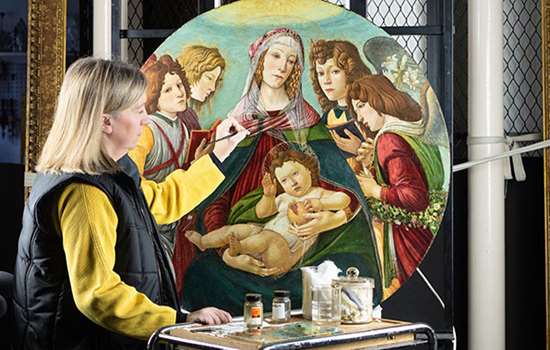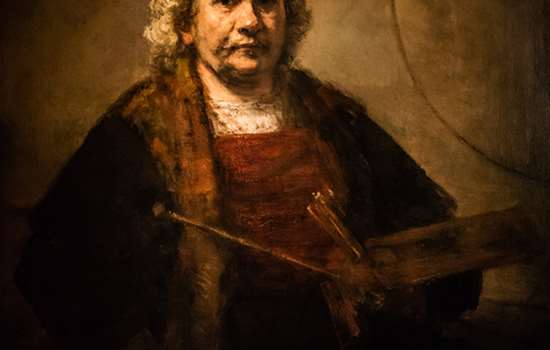03/04/2019
Graphic designer Abram Games commemorated with London blue plaque
English Heritage unveils a blue plaque to the graphic artist ahead of a major retrospective at the National Army Museum.
One of the most important graphic designers of his generation, Abram Games, has been commemorated with a blue plaque today (3 April).
The plaque marks the house in Golders Green that was his design studio, plus a workshop for his mechanical designs and a busy family home from 1948 until his death nearly half a century later. It was here that he designed the iconic Festival of Britain symbol in 1951, an emblem that was seen country-wide on posters, badges, stationery, street decorations, medals, tickets, and even embossed on soap and chocolate.
English Heritage Blue Plaques Panel member, Sir Peter Bazalgette, said:
“Abram Games was one of the most significant poster artists of the twentieth century and we are delighted to celebrate his many achievements here today, at his former home. A house still owned by the Games family.”
Games’ design philosophy was ‘maximum meaning, minimum means’, which produced highly impactful poster designs, at first in support of the war effort and later for commercial campaigns, such a the Guinness ‘G’.
The Festival of Britain symbol is his best-known legacy; it represented, according to design historian and former Blue Plaques Panel member Sir Christopher Frayling, ‘a domesticated form of modernism’, featuring a Britannia shorn of heraldic ornamentation – ‘stripped down, more forward looking, like the Skylon on the South Bank,’
Initially based in a studio in a back room on the ground floor, Games eventually expanded into the larger front sitting room where he had the space to work on a number of inventions – including a lawnmower, a vacuum cleaner, an electric razor, car door hinges, tyre treads for Dunlop and a coffee machine for Cona that is now a collectors’ item.
As Games’s interest in mechanical objects continued to grow and as his workshop became ever more cluttered he moved it up into the attic.
Games was ‘Official War Poster Artist’ for the Public Relations Department at the War Office from 1942 until 1945.
A new exhibition at the National Army Museum in Chelsea (6 April - 24 November 2019) shows his wartime work of over 100 posters together for the first time. It explores how his Jewish refugee heritage, experiences as a soldier and the turbulent politics of wartime Britain shaped the career of a man who continues to influence design industry professionals today.
Find out more about our Blue Plaques Scheme.
For more from English Heritage, follow us on Facebook, Twitter and Instagram.


